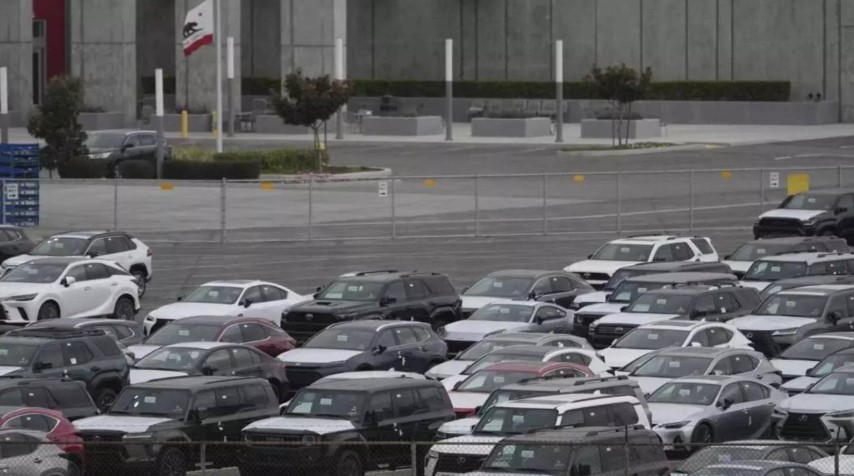

Trump tariff to make US 'wealthy again' to hurt Indian auto parts exporters
President Donald Trump’s decision to impose a 25% tariff on all imported autos and auto parts will negatively impact Indian auto component exporters. Experts predict that this move could increase costs for US consumers by 8% to 25%.
Research shows that the US imported over 8 million cars in 2024, amounting to approximately $240 billion in trade value. Financial services firm Wedbush Securities reported that nearly 40% of US-produced cars rely on imported parts. Anderson Economic Group, a consultancy working with major manufacturers, estimated that tariffs could raise car prices by $4,000 to $12,500, depending on the model.
Table of Contents
ToggleDuring the White House’s ‘Make America Wealthy Again’ event on Wednesday, Trump announced that the United States would enforce a 25% tariff on all foreign-made cars starting at midnight.


Indian Automakers Face Minimal Impact as US Exports Remain Low
Indian original equipment manufacturers in the automotive sector are expected to experience minimal impact. Reports indicate that India’s exports of passenger cars and commercial vehicles to the US account for only 0.13% and 3% of its total vehicle exports, respectively. The Global Trade Research Initiative noted that India’s passenger car shipments to the US in 2024 were valued at $8.9 million—just 0.13% of India’s total car exports worth $6.98 billion.

Tata Motors may feel an indirect impact from Trump’s tariffs, as the US market contributed 33% of Jaguar Land Rover’s sales in the first nine months of FY25 and around 23% of its revenue in FY24.
India's Auto Part Exports to US Limited, But Tariffs May Hit Key Firms
Meanwhile, India’s car parts exports to the US make up one-third of its $21.2 billion in industrial exports. However, India supplies only 2% of the United States’ total auto component imports, while Mexico, Canada, and China contribute 39%, 13%, and 12%, respectively.
The new tariff could affect Sona BLW Precision Forgings, which generates 40% of its revenue from the US market. Motherson Group and Bharat Forge also derive about 18% and 30% of their earnings from the US, respectively. While this levy may not significantly impact India’s economy, analysts warn that broader trade volatility could weaken the rupee further and widen the nation’s current account deficit. However, India maintains a labor cost advantage, with average monthly wages for workers ranging between ₹30,000 and ₹40,000, compared to $4,000 in the US.
Limited US Exposure Shields Indian Auto Firms, But Competitiveness at Risk
A Crisil Intelligence report reveals that only 15% of India’s automobile production is exported, exposing just 4.2% of domestic component makers to the US market. When factoring in components subject to tariffs, this exposure drops further to 3.5% of annual car component sales, reducing the potential impact.
Limited exports to the US will help protect component manufacturers’ revenues. However, Crisil warned that higher US prices could reduce the competitiveness of domestic component makers.
Mike Hawes, CEO of the UK automotive group Society of Motor Manufacturers and Traders, told the media, “Manufacturers cannot absorb these tariff costs. US consumers may face higher prices and fewer choices for iconic British brands, while UK producers may need to reassess output due to constrained demand.”


